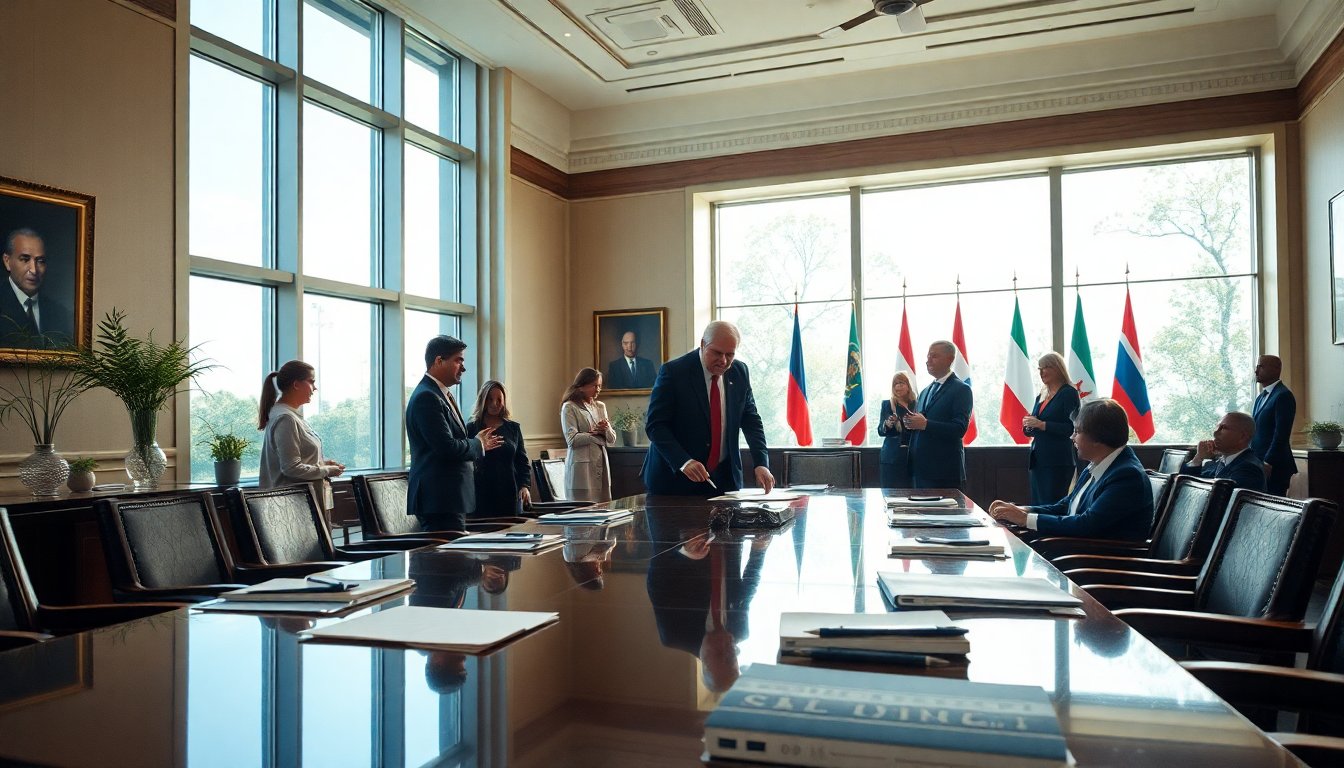Table of Contents
In a notable incident that has stirred discussions about the blurred lines between political leadership and business interests, a recent hot-mic moment captured President Trump appearing to facilitate a meeting between his son, Eric Trump, and the president of Indonesia. This interaction raises questions about the intersection of business dealings and governmental responsibilities in the Trump administration.
The context of Trump’s business engagements
President Trump has often been at the center of controversy regarding his business affiliations while in office. His administration has frequently been scrutinized for potential conflicts of interest, especially given Trump’s extensive background in business prior to his presidency. This incident not only illuminates the intricate web of relationships that exist but also demonstrates how personal and political agendas can intertwine.
Meeting logistics raise eyebrows
A recent incident revealed President Trump discussing a meeting setup for his son with Indonesia’s leader. The conversation, captured by a microphone, showcased an informal tone that underscores a troubling familiarity with presidential power. This moment raises questions about the boundaries between personal interests and official duties.
Critics contend that leveraging presidential influence for familial business pursuits undermines the integrity of political office. They argue that decisions should prioritize public welfare over personal gain. Such behaviors challenge the principles of transparency and accountability expected from elected officials.
Implications for U.S.-Indonesia relations
Indonesia is a rapidly growing economy in Southeast Asia and plays a significant role for the United States. The relationship between the two nations is influenced by shared interests in trade, security, and environmental concerns. However, the emergence of personal agendas within diplomatic interactions raises serious questions about the integrity of these partnerships. The risk of conflicts of interest not only complicates U.S. foreign policy but also impacts the global perception of American leadership.
The balance between diplomacy and business
The distinction between diplomatic engagements and business dealings can often become unclear. In this instance, Trump’s actions may raise doubts about the sincerity of U.S. intentions in its interactions with Indonesia. Political leaders must preserve a clear boundary between their personal interests and their official responsibilities. A failure to maintain this boundary can undermine trust on both domestic and international fronts.
The role of media and public perception
Media coverage of these situations significantly influences public perception. The hot-mic incident highlights the transparency challenges that have characterized Trump’s presidency. As the public becomes more conscious of such events, there is a growing concern regarding the ethical implications of a president whose family business interests are closely intertwined with his political actions.
Engagement with the public
Political leaders must engage with the public with honesty and transparency, especially in light of recent events. This incident offers an opportunity for Trump to clarify his stance and reassure Americans that his priorities lie with the nation, not his personal business interests. A well-defined communication strategy can help address the fallout from these revelations.
This situation highlights the need for clear boundaries between personal and professional spheres for those in power. As global attention focuses on these dynamics, Trump’s approach to managing these challenges will play a crucial role in shaping his legacy and the future of U.S. foreign relations.


